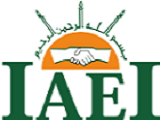Effectiveness of Monetary Policy Transmission Through Sharia and Conventional Instruments in Influencing Inflation in Indonesia
Abstract
This study investigates the influence of the transmission of monetary policies through the Sharia and Conventional monetary policy instruments on Indonesian inflation using data analysis techniques such as the Vector Error Correction Model (VECM). The data of this study was obtained from financial statements of the Annual Report of Indonesian Economic and Financial Statistics (2016 to 2020), Consumer Price Index (CPI) data taken from the Central Bureau of Statistics (BPS; 2016 to 2020), from Banking Statistics Annual Reports (2016 to 2020), and from the Islamic Banking Statistics Annual Reports (2016 to 2020). The test results on the sharia instrument indicators show a negative reaction of the Consumer Price Index to shocks in FINC and SBIS, but a positive reaction to shocks in third-party funds and Islamic interbank money market. According to the test results on the conventional instrument indicators, the Consumer Price Index responds negatively to shock in LOAN, DPK, and SBI, and positively to shocks in PUAB.
Keywords
Full Text:
PDFReferences
Ahmad, I. U. (1992). Islam and the Economic Challenge. In American Journal of Islam and Society (Vol. 9, Issue 4, pp. 546–555). https://doi.org/10.35632/ajis.v9i4.2540
Arno, A. K., Ishak, I., & Kamal, F. (2021). The Performance of Competitiveness of Sharia Banking (Indonesia-Pakistan) Using Porter’s Diamond Theory. FITRAH: Jurnal Kajian Ilmu-Ilmu Keislaman, 7(2), 261–284. https://doi.org/10.24952/fitrah.v7i2.4188
Ascarya, A. (2012). Transmission Channel and Effectiveness of Dual Monetary Policy in Indonesia. Buletin Ekonomi Moneter Dan Perbankan, 14(3), 269–298. https://doi.org/10.21098/bemp.v14i3.405
Atkin, T., & Cava, G. La. (2017). The Transmission of Monetary Policy : How Does It Work ? 2016, 1–8.
Bawono, A., Laksana, K. U., Nabila, R., & Himmati, R. (2021). Effectiveness of Islamic Monetary Policy Transmission on Inflation and Economic Performance. Shirkah: Journal of Economics and Business, 6(3), 336–360. https://doi.org/10.22515/shirkah.v6i3.432
Blinder, A. S. (1999). Central Banking in Theory and Practice (2nd ed.). The MIT Press Cambridge. http://www.artsrn.ualberta.ca/econweb/landon/1999 Blinder Central Banking.pdf
Chapra, U. (1990). Towards a Just Monetary System Reviewed by : Journal of King Abdulaziz University: Islamic Economics, 2(1), 109–115. https://papers.ssrn.com/sol3/papers.cfm?abstract_id=3126116
Fisher, I. (1922). The Purchasing Power of Money, its Determination and Relation to Credit, Interest and Crises. The Online Library of Liberty A, 45(02), 330. https://doi.org/10.5860/choice.45-0637
Hamza, H., & Saadaoui, Z. (2018). Monetary transmission through the debt financing channel of Islamic banks: Does PSIA play a role? Research in International Business and Finance, 45(August 2017), 557–570. https://doi.org/10.1016/j.ribaf.2017.09.004
Hasan, M. B., Mahi, M., Hassan, M. K., & Bhuiyan, A. B. (2021). Impact of COVID-19 pandemic on stock markets: Conventional vs. Islamic indices using wavelet-based multi-timescales analysis. North American Journal of Economics and Finance, 58(February), 101504. https://doi.org/10.1016/j.najef.2021.101504
Kaminska, I., Mumtaz, H., & Šustek, R. (2021). Monetary policy surprises and their transmission through term premia and expected interest rates. Journal of Monetary Economics, 124(xxxx), 48–65. https://doi.org/10.1016/j.jmoneco.2021.07.009
Karima, N. K. (2018). Analisis Mekanisme Transmisi Kebijakan Moneter Syariah Jalur Kredit terhadap Inflasi di Indonesia 2010.1 – 2017.12.
Katmas. (2022). The Effect of BI Interest Rate, Exchange Rate, and Inflation on The Indonesian Sharia Stock Index (ISSI). Indonesian Interdisciplinary Journal of Sharia Economics, 15(2), 1–23.
Koeniger, W., Lennartz, B., & Ramelet, M. A. (2022). On the transmission of monetary policy to the housing market. European Economic Review, 145(February 2021), 104107. https://doi.org/10.1016/j.euroecorev.2022.104107
Lakdawala, A., Minetti, R., & Schaffer, M. (2021). Bank regulation and monetary policy transmission: Evidence from the U.S. States liberalization. European Economic Review, 138(August), 103859. https://doi.org/10.1016/j.euroecorev.2021.103859
Madani, A., & Widiastuti, T. (2021). the Impact of Islamic Monetary Operations and Aggregate Financing on Economic Growth in Indonesia (2010-2020). Jurnal Ekonomi Dan Bisnis Islam (Journal of Islamic Economics and Business), 7(2), 185. https://doi.org/10.20473/jebis.v7i2.26085
Manurung, R. &. (2008). Pengantar Ilmu Ekonomi (Mikro Ekonomi & Makro Ekonomi.
McCarthy, J., & Peach, R. W. (2002). Monetary Policy Transmission to Residential Investment. FRBNY Economic Policy Review, May, 139–158.
Nopirin. (1996). Ekonomi moneter buku I.
Nopirin. (2013). Ekonomi Moneter - Google Books. https://www.google.co.id/books/edition/Ekonomi_Moneter/i3A6DAAAQBAJ?hl=id&gbpv=0&kptab=overview
Ponziani, R. M. , & Mariyanti, T. (2020). Islamic Bank and Monetary Policy: The Case of Indonesia. International Journal of Islamic Economics and Finance (IJIEF), 3(1), 121–142. https://doi.org/10.18196/ijief.2124
Priskila, I. Della, & Nurhasanah, N. (2021). Analysis of the Effect of Inflation , BI Rate , and Exchange on Profitability of Sharia Banks in Indonesia ( Period 2014-2019). Jurnal Ekonomi Dan Perbankan Syariah, 9(2), 46–64.
Rashid, A., Hassan, M. K., & Shah, M. A. R. (2019). On the role of Islamic and conventional banks in the monetary policy transmission in Malaysia: Do size and liquidity matter? Research in International Business and Finance, 52, 3–21. https://doi.org/10.1016/j.ribaf.2019.101123
Saeed, S. M., Abdeljawad, I., Hassan, M. K., & Rashid, M. (2021). Dependency of Islamic bank rates on conventional rates in a dual banking system: A trade-off between religious and economic fundamentals. International Review of Economics and Finance. https://doi.org/10.1016/j.iref.2021.09.013
Setiawan, I. (2019). The Role of Islamic Banking in the Development of Economic Sectors in Indonesia. International Journal of Applied Business Research, 1(02), 88–99. https://doi.org/10.35313/ijabr.v1i02.70
Sudarsono, H. (2017). Analisis efektifitas transmisi kebijakan moneter konvensional dan syariah dalam mempengaruhi tingkat inflasi. Jurnal Ekonomi & Keuangan Islam, 3(2), 53–64. https://doi.org/10.20885/jeki.vol3.iss2.art1
Tamanni, A. A. (2021). Monetary Policy Shocks and Islamic Banks’ Deposits in Indonesian Dual Banking System After The Financial Crisis. European Economic Review, 3(2), 104107. https://doi.org/10.1016/j.bir.2013.11.001
Taylor, J. B. (1995). The Monetary Transmission Mechanism: An Empirical Framework. Journal of Economic Perspectives, 9(4), 11–26. https://pubs.aeaweb.org/doi/pdfplus/10.1257/jep.9.4.11
Warjiyo, P. (2004). Mekanisme Transmisi Kebijakan Moneter di Indonesia, Pusat Pendidikan dan Studi Kebanksentralan (PPSK). In Bank Indonesia. Jakarta.
Warjiyo, Perry. (2016). Central Bank Policy Mix: Key Concepts and Indonesia’S Experience. Buletin Ekonomi Moneter Dan Perbankan, 18(4), 379–408. https://doi.org/10.21098/bemp.v18i4.573
Warjiyo, Perry, Pendidikan, P., Studi, D. A. N., Ppsk, K., & Warjiyo, P. (2004). Moneter Di Indonesia. In Mekanisme Transmisi Kebijakan Moneter Di Indonesia (Issue 11, pp. 3–42). Pusat Pendidikan dan Studi Kebanksentralan.
Wei, X., & Han, L. (2021). The impact of COVID-19 pandemic on transmission of monetary policy to financial markets. International Review of Financial Analysis, 74(37), 101705. https://doi.org/10.1016/j.irfa.2021.101705
Zainul hadi, Mansur Afifi, T. C. (2020). Analisis Transmisi Kebijakan Moneter Melalui Instrumen Konvensional Dan Syariah Terhadap Inflasi Di Indonesia Periode 2014.6-2019.12. Paper Knowledge . Toward a Media History of Documents, 19(1), 1–16.
DOI: http://dx.doi.org/10.24042/febi.v7i1.13084
Refbacks
- There are currently no refbacks.
Copyright (c) 2022
Ikonomika : Jurnal Ekonomi dan Bisnis Islam is a Journal of Islamic Economics and Business, Published by the Faculty of Islamic Economics and Business at UIN Raden Intan Lampung Indonesia. This work is licensed under a Creative Commons Attribution-ShareAlike 4.0 International License.






11.png)


